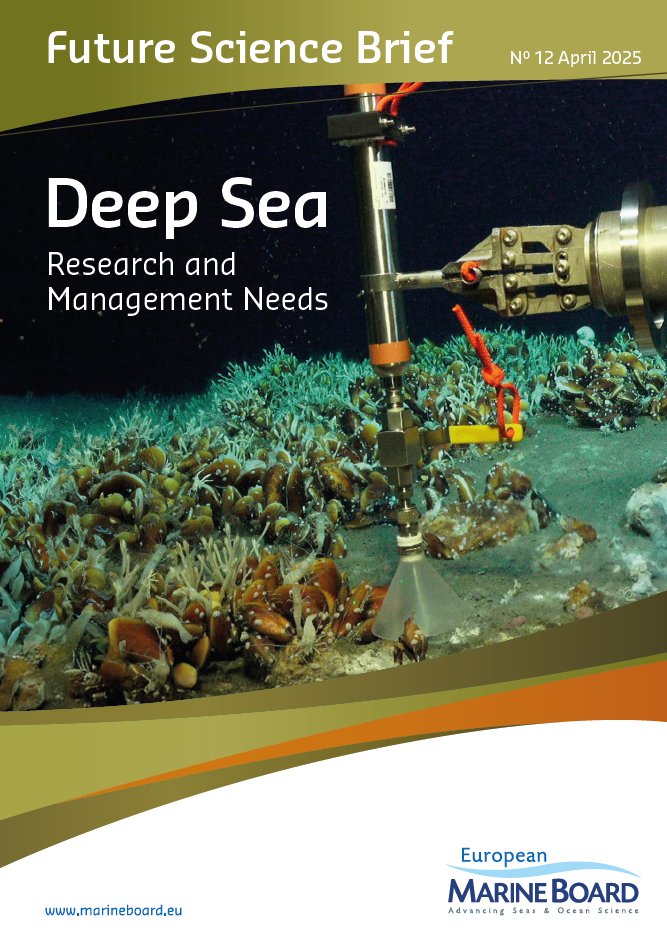Preserving and Using the Deep Sea: Scientists Call for More Knowledge to Enable Sustainable Management
Where does the deep sea begin? Definitions vary across science and legal frameworks. For the purposes of their joint analysis, the members of the European Marine Board’s (EMB) Deep Sea and Ocean Health Working Group defined the deep sea as the water column and seabed below 200 metres. Below this point, sunlight barely penetrates the water, and the habitat changes dramatically. According to this definition, the deep sea accounts for about 90 per cent of the ocean’s volume. Its importance for ecosystems and biodiversity is therefore immense. However, pressure on these still relatively untouched areas of our planet is growing: human activities such as oil extraction, fishing, and potential seabed mining threaten deep-sea ecosystems, while climate change is already having a negative impact.
The working group of eleven researchers has now presented its findings and ten key recommendations on the deep sea and ocean health. Under the leadership of Prof. Dr Sylvia Sander, Professor of Marine Mineral Resources at GEOMAR Helmholtz Centre for Ocean Research Kiel, and Dr Christian Tamburini from the French Mediterranean Institute of Oceanography (MIO), the team produced the report, which is being launched today by the EMB in a webinar. The document emphasises, among other points, the urgent need for major investment in deep-sea research to close knowledge gaps and provide a sound scientific basis for decisions such as those concerning deep-sea mining.
“The ocean is an interconnected system stretching from the coast to the deepest depths,” says Sylvia Sander. “Of course, the deep sea cannot be considered in isolation from the photic zone or the seafloor.” Therefore, deep-sea research, use and conservation are intrinsically linked to overall ocean health.
Ten recommendations for sustainable deep-sea protection and better collaboration
The group presents ten central measures for the sustainable protection of the deep sea:
- Effectively govern human activities in the deep sea
- Establish an international scientific committee for deep-sea sustainability and protection
- Contribute to develop and implement deep-sea Environmental Impact Assessment methodologies
- Support transdisciplinary research programs to better understand the role of the deep sea in Ocean (and human) health
- Invest in long-term monitoring in the deep sea
- Launch large-scale and long-term multidisciplinary natural sciences projects to increase knowledge of global deep-sea processes
- Support research efforts in specific critical research fields
- Enhance educational, training and research opportunities for all current and future scientists addressing their unique regional challenges
- Foster the transfer of marine technology and develop training programs
- Continue to promote the Findability, Accessibility, Interoperability, and Reusability (FAIR) Data Principles
Full report
The Future Science Brief on Deep-sea research and managment was launched on 12 April by the European Marine Board's Deep Sea and Ocean Health Working Group. The full report is accesible via their website.
About the European Marine Board
The European Marine Board (EMB) is a partnership of 38 organisations from 19 European countries that are active in marine research. Founded in 1995, its mission is to strengthen cooperation in European marine science and develop joint research strategies. The EMB acts as a bridge between science and policy, supports knowledge exchange, and provides recommendations to national authorities and the European Commission to advance marine research in Europe. Its members include leading oceanographic institutes, research funders, and universities with a marine focus.
